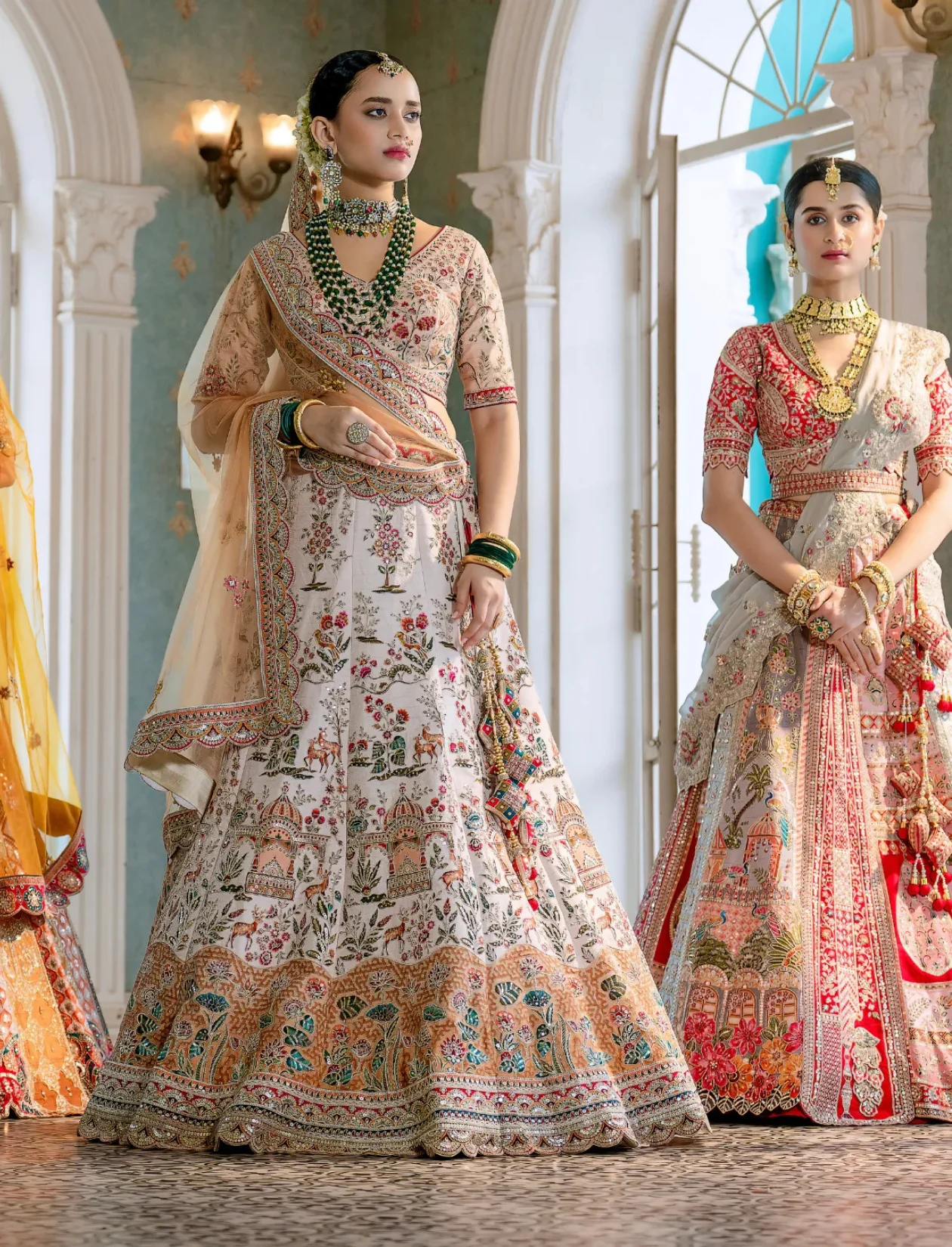Introduction
With Dulhan’s
expansive saree portfolio - from Banarasi silks, Kanjeevarams, georgettes,
chiffons to modern designer creations - selecting the ideal saree can feel
overwhelming. This guide helps you choose wisely, guided by occasion, fabric,
and personal style.
Occasion &
Draping Style
Start by matching
saree style to the occasion. For weddings or receptions, heavier fabrics like
Banarasi silk or Kanjivaram suit grandeur. For daytime events or less formal
gatherings, georgette or chiffon works well due to lighter drape. Consider how
you like to drape - classic Nivi, Gujarati, Bengali style - and pick a fabric
that supports that fall.
Body Type &
Fabric Compatibility
For taller frames,
heavier silk sarees with rich borders lend balance. If you’re petite, lighter
fabrics with minimal border work help avoid overwhelming your silhouette. For
those with fuller figures, soft silks or fabrics that fall well (georgette, chiffon)
accentuate curves gently.
Color Palette &
Skin Tone
Dulhan’s collections
offer a spectrum: warm golds, deep reds, emerald greens, pastel blushes, and
contemporary neutrals. Warm skin tones complement gold and maroon; cool tones
suit silver, ice blue, or pastel greens. Be open to unexpected shades - consult
stylist suggestions at Dulhan.
Border, Pallu &
Motif Considerations
Heavily worked borders
and pallu draw attention to silhouette edges. If you prefer understated
elegance, choose minimalistic borders and subtle motif placements. If your
jewelry is heavy, ensure the saree’s work doesn’t compete for attention but
harmonizes.
Mix-and-Match
Potential
Prefer flexibility?
Choose a saree whose blouse can pair with skirts, or whose pallu can drape over
lehenga sets. Dulhan stylists can suggest alternate pairings so a saree becomes
part of multiple outfits.
Budget & Value
Dulhan’s sarees vary in price depending on weaving complexity, fabric, and embroidery. You can find exquisite sarees at moderate rates or opt for heavily embellished premium options. Always inspect the finishing, weave consistency, and embroidery alignment for value assurance.
Final Selection
Checklist
- Verify stitching quality and pallu
symmetry
- Try draping to test fall and balance
- Ask stylist for alternate color or border
variants
- Confirm care instructions (especially with
zari work)
- Retain a purchase certificate or tag for
future reference
Summary
Choosing a saree at
Dulhan is an informed journey: match occasion, body type, drape preference, and
aesthetic direction. With guidance from their stylists and the breadth of
fabrics, your saree becomes more than attire - it becomes your signature in
tradition.
